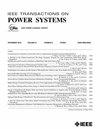Electric Load Forecasting for Individual Households via Spatial-Temporal Knowledge Distillation
IF 6.5
1区 工程技术
Q1 ENGINEERING, ELECTRICAL & ELECTRONIC
引用次数: 0
Abstract
Short-term load forecasting (STLF) for residential households has become of critical importance for the secure operation of power grids as well as home energy management systems. While machine learning is effective for residential STLF, data and resource limitations hinder individual household predictions operated on local devices. In contrast, utility companies have access to broader sets of data as well as to better computational resources, and thus have the potential to deploy complex forecasting models such as Graph neural network-based models to explore the spatial-temporal relationships between households for achieving impressive STLF performance. In this work, we propose an efficient and privacy-conservative knowledge distillation-based STLF framework. This framework can improve the STLF forecasting accuracy of lightweight individual household forecasting models via leveraging the benefits of knowledge distillation and graph neural networks (GNN). Specifically, we distill the knowledge learned from a GNN model pre-trained on utility data sets into individual models without the need to access data sets of other households. Extensive experiments on real-world residential electric load datasets demonstrate the effectiveness of the proposed method.通过时空知识蒸馏实现单个家庭的电力负荷预测
居民家庭短期负荷预测对于电网和家庭能源管理系统的安全运行至关重要。虽然机器学习对住宅STLF有效,但数据和资源限制阻碍了在本地设备上运行的个人家庭预测。相比之下,公用事业公司可以访问更广泛的数据集以及更好的计算资源,因此有可能部署复杂的预测模型,如基于Graph神经网络的模型,以探索家庭之间的时空关系,从而实现令人印象深刻的STLF性能。在这项工作中,我们提出了一个高效且隐私保守的基于知识蒸馏的STLF框架。该框架可以利用知识蒸馏和图神经网络(GNN)的优势,提高轻量级个体家庭预测模型的STLF预测精度。具体来说,我们将从公用事业数据集预训练的GNN模型中学到的知识提取到单个模型中,而无需访问其他家庭的数据集。在实际住宅用电负荷数据集上的大量实验证明了该方法的有效性。
本文章由计算机程序翻译,如有差异,请以英文原文为准。
求助全文
约1分钟内获得全文
求助全文
来源期刊

IEEE Transactions on Power Systems
工程技术-工程:电子与电气
CiteScore
15.80
自引率
7.60%
发文量
696
审稿时长
3 months
期刊介绍:
The scope of IEEE Transactions on Power Systems covers the education, analysis, operation, planning, and economics of electric generation, transmission, and distribution systems for general industrial, commercial, public, and domestic consumption, including the interaction with multi-energy carriers. The focus of this transactions is the power system from a systems viewpoint instead of components of the system. It has five (5) key areas within its scope with several technical topics within each area. These areas are: (1) Power Engineering Education, (2) Power System Analysis, Computing, and Economics, (3) Power System Dynamic Performance, (4) Power System Operations, and (5) Power System Planning and Implementation.
 求助内容:
求助内容: 应助结果提醒方式:
应助结果提醒方式:


